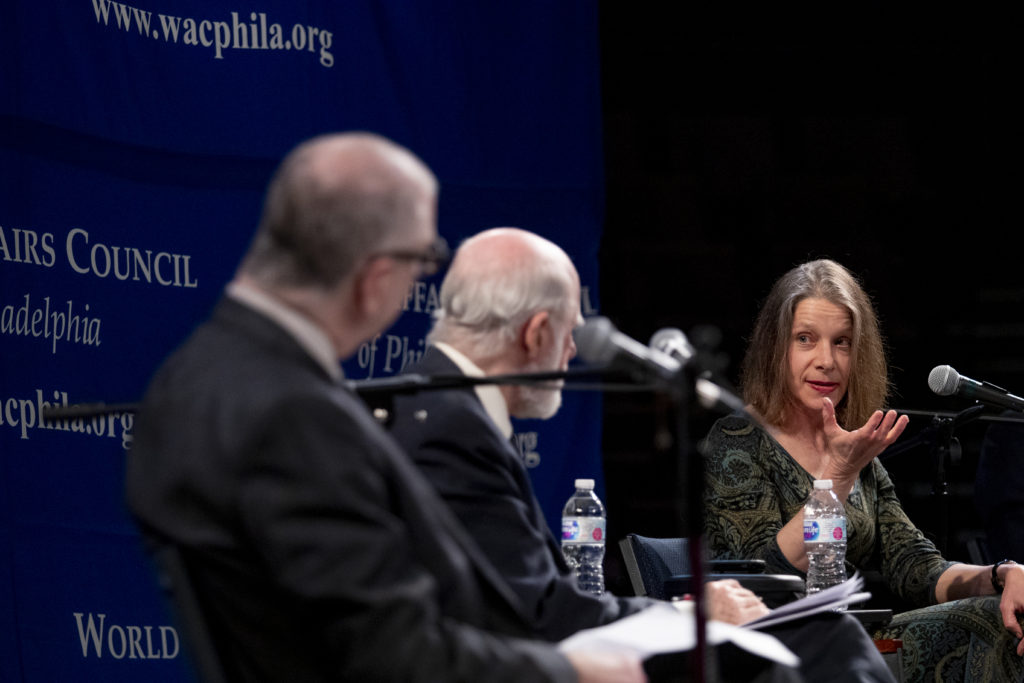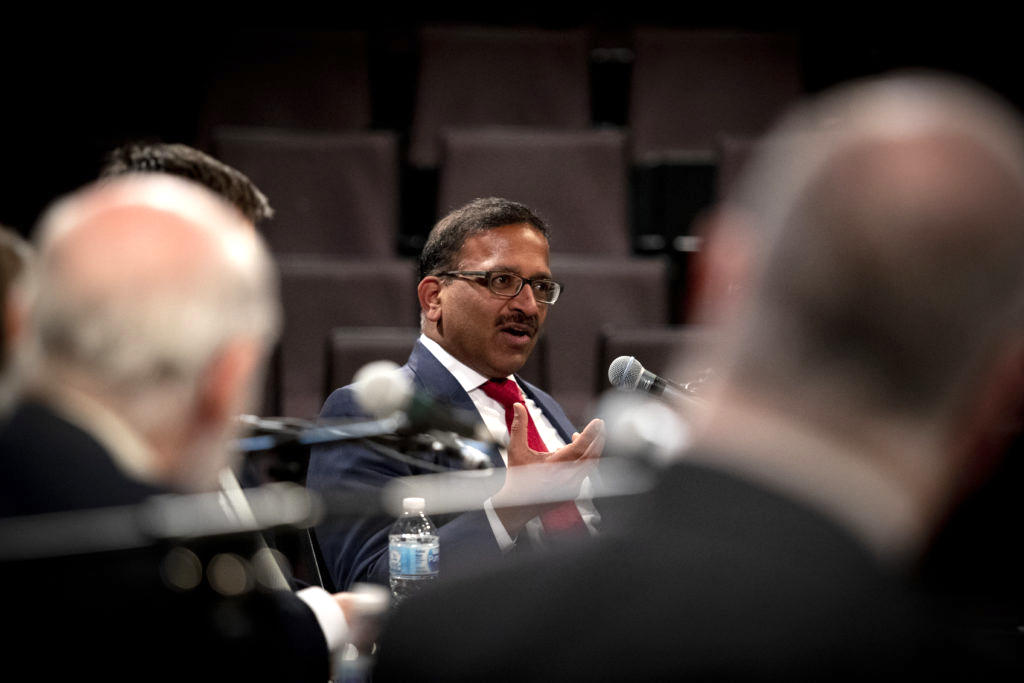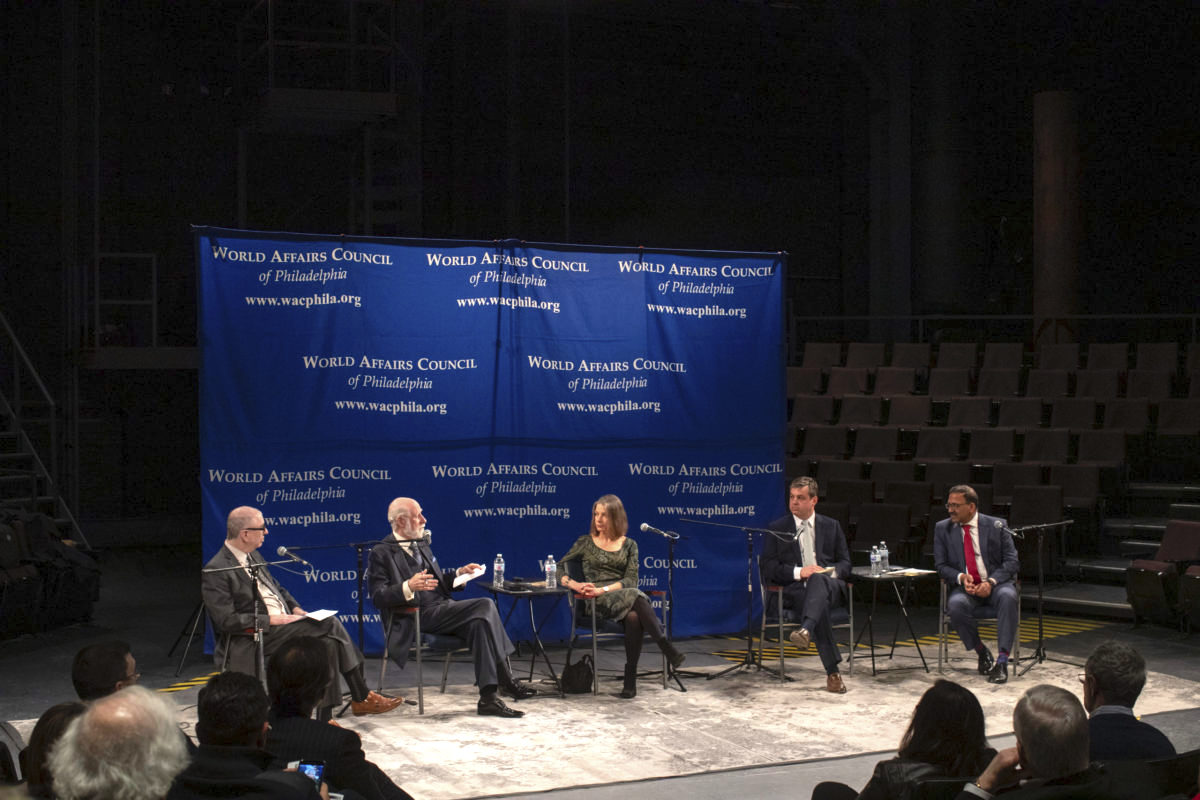Learning from our past and reevaluating our present, a recent World Affairs Council of Philadelphia (WAC) event opened discussion for what’s next in the world of information access.
Craig Snyder, president and CEO of the local council, set the tone for the gathering at the Arden Theater on Jan. 28, promising a lively discussion on “one of the driving forces in world affairs in the 21st century” — the internet.
Panelists for WAC’s “The Future of the Internet” event that night included Vinton “Vint” G. Cerf, VP and chief internet evangelist at Google, widely regarded as one of the “Fathers of the Internet” as co-designer of the TCP/IP protocols and the architecture of the internet; Judith Donath, author of “The Social Machine” and advisor for the Berkman Klein Center for the Internet & Society at Harvard University; Andrew Mariniello, a partner at Morgan Lewis & Bockius; and Ram Mohan, the chief operating officer of Afilias.
The four panelists exchanged thoughts about the ever-changing interaction between the internet and society.
Cerf posed the question of how to retain the “value” of the internet in midst of abuse. He examined both the positives — the accessibility to information and the opportunities it provides to society — and negatives — misuse of information — and offered suggestions. Mohan later emphasized a similar point, sharing his observation of both the “greed and nobility” seen in the tech space.
Snyder spoke to the changes in perception over the past decade, wherein the information capabilities of the internet were understood in increasingly complicated ways: the positive “wisdom of the crowd” tempered by the unnerving “cruelty of the mind.”
“I’m very concerned about that fragmentation,” Cerf responded. “Because of that, I would argue if there is any wisdom in the crowd, it’s being lost because there’s no common knowledge upon which our people are building their opinions. What they have is highly diverse, disparaging and conflicting information.”
Donath, whose book asks fundamental questions about how we want to interact and communicate online, outlined a straightforward approach in addressing the need for critical thinking and discernment.

Donath urged those in attendance to identify “cause vs. blame” when talking about the internet. Beyond external evaluation, she said a deeper question for everyone to consider is why the truth is important to their own self interest. She highlighted the contradiction of people using the internet not to search for scientific truth, but to seek validation of what they believe, or want to believe.
People “look for what’s entertaining or what they agree with,” she told Generocity.
Mariniello focused on how the information bubbles fostered by the internet, which feed one point of view, create difficulty in communication. Taking the legal perspective on the panel, he wondered about the credible sources people can turn to.
“Whether it’s political discourse or groups with competing ideas,” he said, “it’s made it really difficult for folks to have a rational reason to argue with.”
Mohan spoke about how individuals tend to weaponize technology to their own advantage, and that the real challenge is “how do we adapt to the inevitable weaponization?” He addressed how society interacts with technology dividing things into those you learn and those you are taught.
“Things that you learn are often intuitive things — how do you access a phone, or how do you access the internet, things like that. You can give an iPad to an infant, and they’ll figure it out. You don’t have to teach them those skills,” he told Generocity. “So, interface and interactivity is not something you have to teach. But behavior, norms, appropriateness, research — those are things that you have to teach.”

Bringing a possible solutions to the table, Cerf suggested changing the incentive driving how technology is used.
“If there’s a place where we might usefully begin to understand the dynamics, it would be in that space,” Cerf said. “How do we change the incentives that drive the behaviors that we think are harmful, that are not constructive.”
The panelists broached ideas of responsibility, regulation and providing ways to move forward. They analyzed how people treat information influenced by the direct or indirect impact it has on them and explored the idea that information loses its value when thought of as entertainment. Additionally they spoke about erosion of trust as we are bombarded with information, including targeted ads.
Further discussion included exploring models of information delivery that are not commercially driven, including internet sources financially supported by patrons or subscribers.
“Until recently, people, if they wanted to read a newspaper, bought a newspaper,” Donath told Generocity. “They wanted to see a movie, they’d go to the movies. So [patron support] is not that outrageous, and it doesn’t have to be that expensive.”
At the end of the discussion, Cerf called for a deeper understanding of “defending against the bad and enhancing the constructive,” and Snyder wrapped the event with a few audience questions.
You can watch the full discussion on the World Affairs Council’s YouTube channel:







